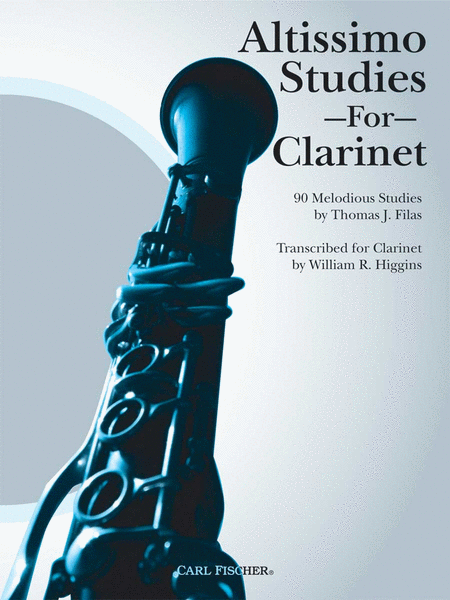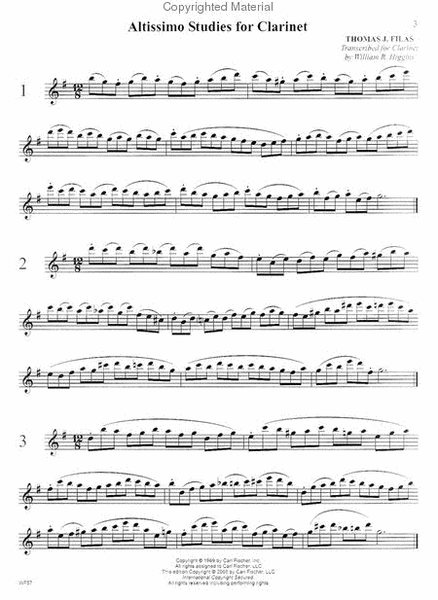Altissimo Studies For Clarinet
90 Melodious Studies by Thomas J. Filas
-
Ships in 24 hours
Details
Description
SKU: CF.WF57
90 Melodious Studies by Thomas J. Filas. Composed by Thomas Filas. SWS. Back To School. Classical. Student book. With Standard notation. 32 pages. Carl Fischer Music #WF57. Published by Carl Fischer Music (CF.WF57).ISBN 9780825859960. UPC: 798408059965. 9 X 12 inches. Transcribed by William Higgins.
Today’s clarinetist is obligated, by contemporary literature,to play in the altissimo register more often and for longerphrases than ever before. Clarinet pedagogue William R.Higgins has transcribed for the clarinet Thomas Filas’ widelyaccepted studies for flute to help clarinetists to extend theirrange and improve their proficiency in this register as theymust in the chalumeau and clarion registers. A much-neededtext for the serious student of the clarinet.
The Importance of These StudiesToday’s clarinetist is obligated, by contemporary literature, to play in the altissimoregister more often and for longer phrases than was required in most of the literatureof the nineteenth and twentieth centuries. For this reason, clarinetists need to be asproficient and relaxed in the altissimo register as in the chalumeau and clarion registers.In the past, etudes have been long works centering on a technique to be acquired.Concentrating on the altissimo register in this manner makes the performer becometense and have difficulty listening to the high pitches for a long period of time. Filas haswritten these ninety etudes as three-line exercises. They are short, musical, enjoyable,and effective for practicing.The Filas studies were selected because of their excellent acceptance and success withflute students. They have been transcribed to keys that focus on extending the clarinetist’srange gradually from D6 to A6.Recommended ApproachFor the intermediate student, the etudes should be assigned one at a time. The advancedstudent will be able to handle a page for each lesson and complete the exercises in asemester.Students should be given instruction in the best fingerings to use in the key being studied.Practice should begin at a metronome marking of q.=60 and should increase each dayby approximately eight degrees until the next lesson, when the etudes are performedat about q.=100 to 120. Practicing with a metronome is critical to the development of asmooth, even technique.—William R. Higgins.


 Share
Share